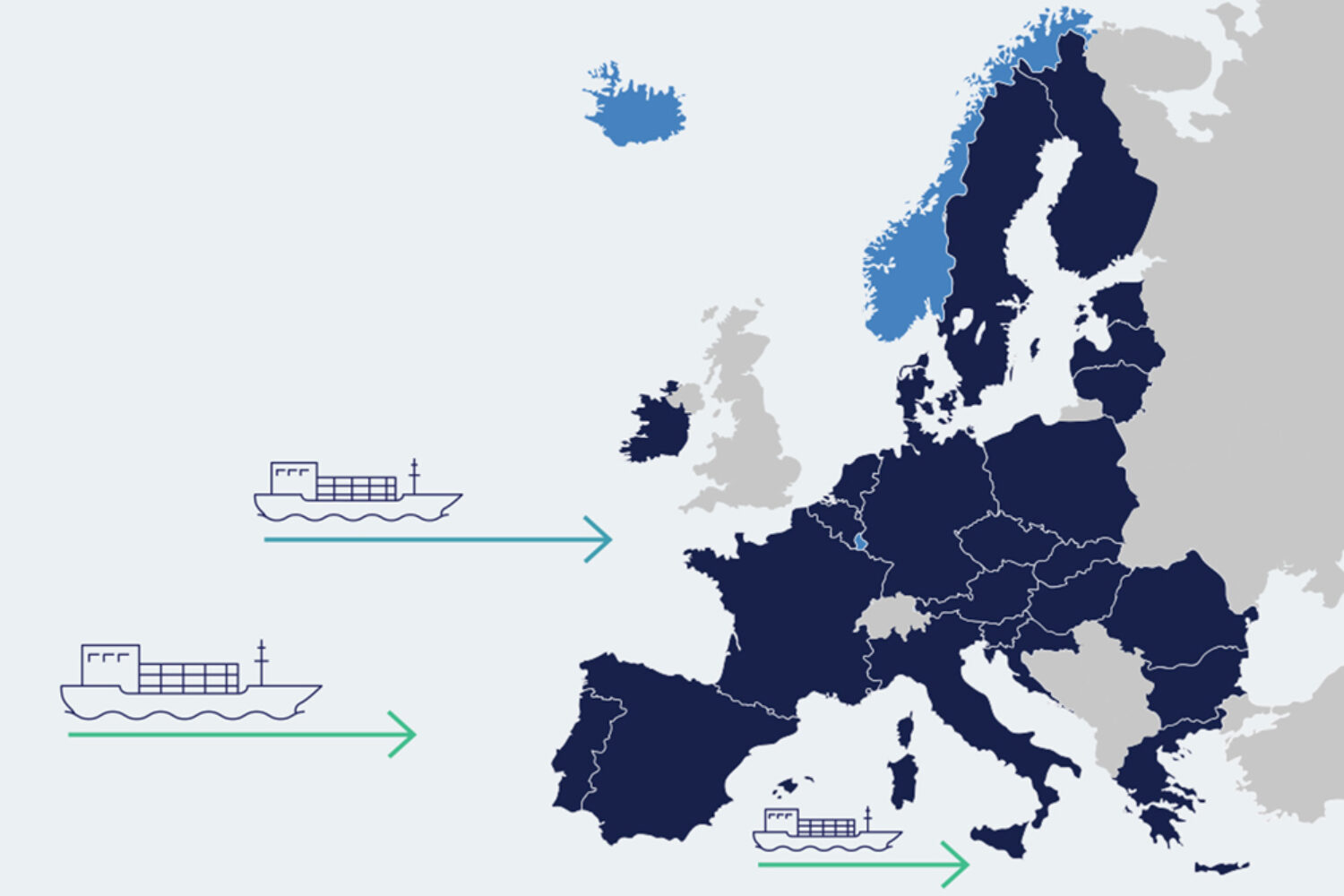The shipping organisation Bimco has presented the long-awaited contractual clause for the upcoming FuelEU Regulation.
On 1 January 2025, the FuelEU Regulation will come into force for maritime transport in European waters. Against this background, the global shipping organization Bimco has published a FuelEU clause for time charter contracts.
“The FuelEU maritime regulation will have a significant impact on the shipping industry, even more so than the EU Emissions Trading Scheme,” says Nicholas Fell, Chairman of the Documentation Committee at Bimco.
Shipowner is responsible for FuelEU
The company responsible for compliance with FuelEU Maritime under the new Bimco clause is, in principle, the shipowner in accordance with the polluter pays principle. The new contractual clause is now available for charter agreements. If, as is often the case in practice, a ship manager assumes all duties and responsibilities in operations, there is usually a ship management agreement (Shipman). A corresponding clause is still in the works, according to Bimco.
It is not only time charter agreements that need to take FuelEU Maritime into account, explained Antonia Panayides, Partner in Reed Smith’s Transportation Industry Group. Many other documents, such as freight contracts, ship management contracts, bunker supply contracts or purchase and sales contracts, would also have to be amended accordingly.
FuelEU is considered a complex regulation
In principle, the clause for time charter contracts stipulates that charterers pay the owners a surcharge if the ship has a compliance deficit during the charter period. The parties must agree when such a payment is to be made.
On the other hand, if the charterer returns the vessel with a compliance surplus, the parties could agree on how to deal with it if this surplus remains with the vessel after the end of the employment.
With its FuelEU Maritime Directive, the EU wants to increase the demand for renewable and low-carbon fuels and their use in shipping and thus reduce greenhouse gas emissions (GHG). The greenhouse gas intensity of the fuels used by the shipping sector is to be gradually reduced by 2% from 2025 until a reduction of 80% is achieved in 2050.
The average amount of GHG generated by a ship’s energy consumption per year must not exceed a specified limit. Journeys within the EU are fully charged at 100%, whereas inbound and outbound journeys are only charged at 50%. The fuel used or the respective fuel mixture is decisive. The EU has issued so-called reference values for every conceivable variant from HFO to e-fuels, which define the environmental impact.
The fuel used and a well-to-wake approach, which considers the entire life cycle from production, are decisive. If the GHG thresholds set by the EU, which are gradually decreasing, are exceeded, the shipowner must pay a fine of around €2,400 per tonne of VLFSO energy equivalent (VLFSOe).
Those who undercut the limit values, on the other hand, do not have to pay anything and can either trade the surplus, put it into pools or offset it internally with other ships. Discount regulations apply for wind propulsion systems or ice class. The use of shore power is considered emission-neutral.













